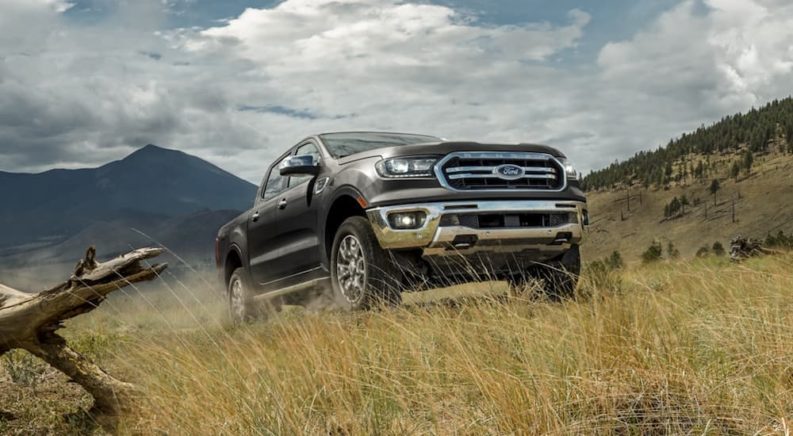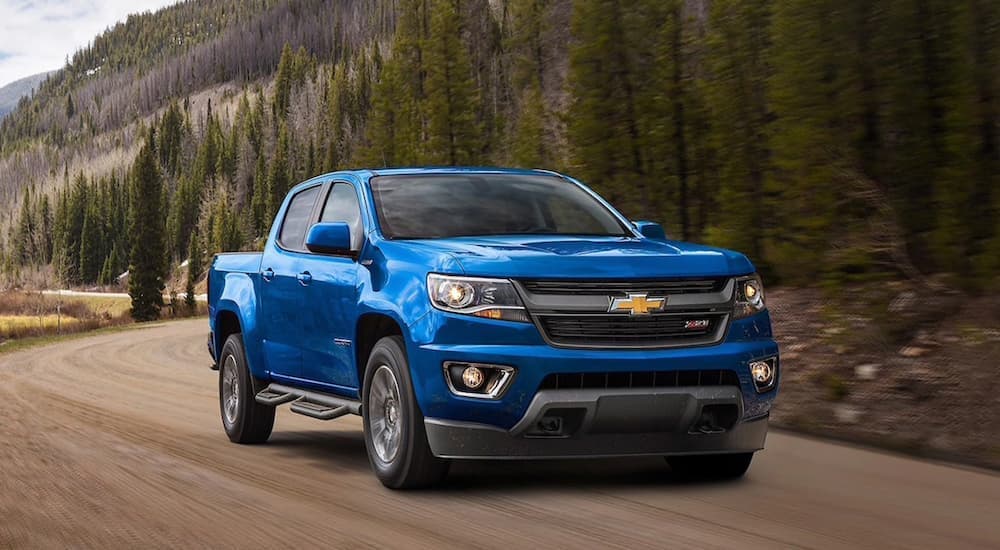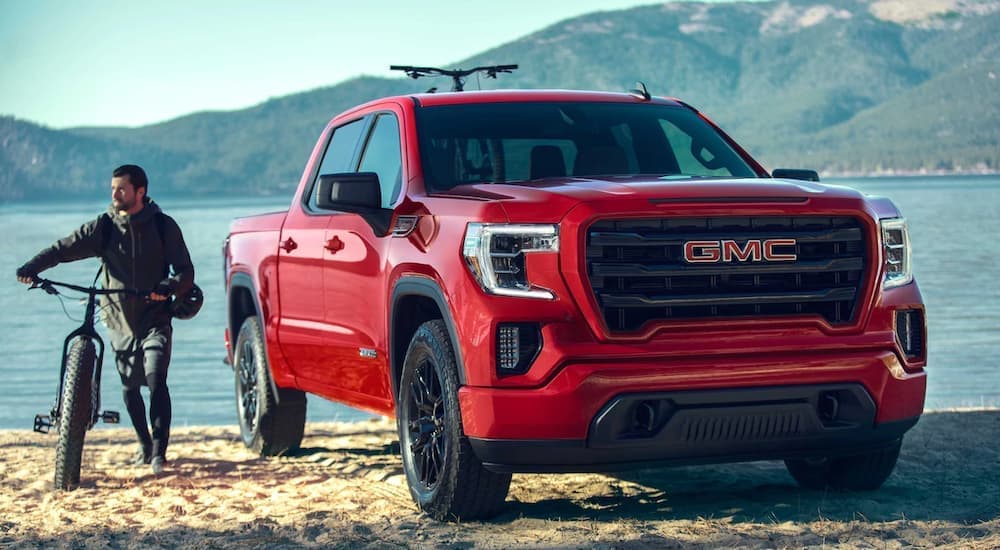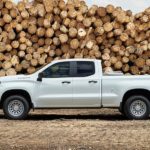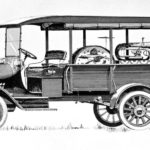More than any other type of vehicle out there, trucks are highly customizable. Browse through used trucks for sale at your local dealership, and you’ll find that a single model from a single year can be available in all kinds of configurations, with not only several trim levels but different available cab sizes, bed sizes, accessories, and powertrains. That last element is the one we’ll be focusing on today. When choosing an engine, a driver needs to find the right balance between the power they need to tackle tough jobs and the efficiency necessary to stay on the road without spending an arm and a leg on fuel.
There are all kinds of ways to differentiate powertrains, including cylinder count and whether or not they’re turbo powered, but one essential factor to consider is what type of fuel they run on. Gasoline is obviously the most popular choice, but it’s not the only game in town. Many trucks offer a diesel option, and eco-friendly alternatives like hybrid powertrains and even all-electric power are becoming more common in pickup trucks. So let’s take a look at the pros and cons of all of the different ways to power a truck.
Gasoline
One big advantage of gasoline is that it’s the default option. That means you’ll have plenty of trucks to choose from. Not all truck makers offer a diesel or hybrid option, but with the exception of specialty automakers like Rivian, just about every truck dealer out there has a good old gas-powered option, and often you can take your pick from multiple available gas engines. Since gasoline is the most common and traditional fuel, you probably already know how to keep track of its price, how it works, and what to expect from it. That means you can save time and possible headaches trying to figure out something new. Since automakers have typically been working with gas engines longer than anything else, they’re familiar with the technology, and you can be sure that decades of experience have gone into the engineering of your gas-powered truck.
Diesel
Many people in the United States consider diesel to be a dirty fuel, so you may be surprised to learn that one of its top advantages is fuel economy. Essentially, diesel has more energy in each gallon than gasoline has, so diesel trucks tend to get significantly better MPG figures, especially when it comes to highway driving. Diesel powertrains also provide plenty of torque, which can come in handy for towing heavy loads. However, they don’t tend to provide the same level of horsepower you can expect from gasoline-powered options.
Technological advancements have made modern diesel engines more refined than their older counterparts, so old complaints like excessive noise and exhaust aren’t really issues anymore. Diesel engines also have fewer components than gas engines, so they tend to be easier and less expensive to repair and maintain. They’re also durable and reliable, though they require some special care in the winter in climates with cold weather.
Flex Fuel
Flex fuel vehicles can run on gasoline, ethanol, or a mixture of the two. As the name suggests, it’s flexible. You can power a flex fuel engine with up to 85% ethanol, but you’ll also be fine with up to 100% gasoline, which is good because not every gas station carries ethanol. When you can get it, however, you’ll often find that ethanol costs less than gasoline. However, the main motivation for most folks who switch to flex fuel isn’t cost; it’s concerns over the issues around gasoline. Ethanol burns cleaner, contributing fewer greenhouse gasses, and since it’s made with crops like corn that are almost always grown here in the US, it helps to decrease reliance on foreign oil.
Ethanol does have its downsides. While diesel contains more power per gallon than gasoline, ethanol contains less, so using more ethanol will decrease your mileage. However, the freedom of flex fuel makes it easy for drivers to find their own balance between the environmental benefits and lower costs of ethanol and the better mileage provided by gasoline.
Electric Power
Environmental arguments can be made for both diesel and ethanol, but when it comes to going green, the consensus is leaning more and more toward an electric future. All-electric pickup trucks may still seem a bit like science fiction right now, but a few are already here, including the Rivian R1T and the Ford F-150 Lightning, and more are on the horizon, with EV versions of beloved models like the GMC Sierra and Chevy Silverado set to arrive soon. Beyond the environmental benefits, there are plenty of reasons to get excited about these new high-tech pickups.
For one thing, an electric powertrain doesn’t need the same regular maintenance as an internal-combustion engine, which means you don’t need to worry about things like oil changes. You can also charge up in your own garage, in a parking lot at a shopping center, or even out at a worksite as long as you have an electric outlet, so you don’t have to make an extra stop at the gas station. Since electricity tends to be significantly cheaper than gasoline or diesel, you’ll save plenty of money in the long term. On top of that, some electric pickups offer unique benefits like a sealed trunk up front where the engine would be on a traditional truck or the ability to use the battery like a mobile generator to power your worksite (or even your house).
However, electric pickups aren’t without their drawbacks. They often boast higher horsepower and torque figures than their traditional counterparts but have lower towing and hauling capacities. This may seem counterintuitive, but once you factor in how heavy the battery packs are, it starts to make sense. Charging the battery also takes longer than filling a tank up with fuel, and generally, EV trucks have less range than pickups that run on fossil fuels. Of course, it’s quite likely that these problems will be solved over time as engineers improve upon battery technology, charging technology, and the design of EV pickups, but for now, there’s still a long way to go.
Gas-Electric Hybrid
If you want to get a taste of electric power but aren’t ready to fully let gasoline go, then there’s always hybrid power. With a traditional hybrid, an onboard battery is charged using regenerative braking, which captures energy that would otherwise simply go to waste, and then that battery powers a motor that provides a power boost to the traditional engine. There are also some plug-in hybrid trucks on the market these days which use a combination of regenerative braking and direct charging, where you plug the battery into an outlet or charging station like you would with an all-electric vehicle. Hybrids can be a bit more expensive up front, but they save you money in the long run with better mileage and often have better stats than their non-hybrid counterparts since the motor’s power is combined with that of the engine.
So Which Ones Is Best?
Since trucks tackle all kinds of jobs, it only makes sense that there are all kinds of trucks that run on all types of fuel. At the end of the day, there’s not really one fuel that’s best for everybody. Rural drivers who want to be able to do long hauls without fueling up can opt for a diesel powertrain, while urban dwellers looking to avoid pain at the pump can seek out a hybrid or EV truck, and traditionalists who are looking to stick with what they know can always get a gas-powered engine under the hood. That kind of range of choices is part of what makes pickups so popular in this country and keeps drivers of all stripes loyal to this body style year after year. So the thing that really comes out on top here is choice, and modern truck drivers clearly have more options than ever before.

